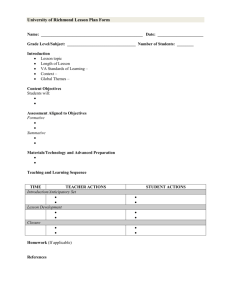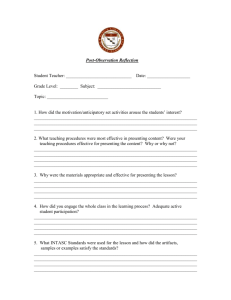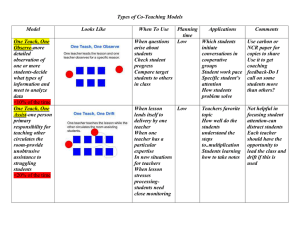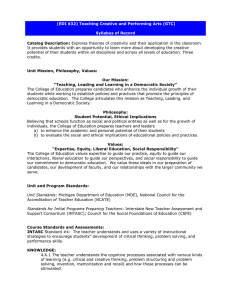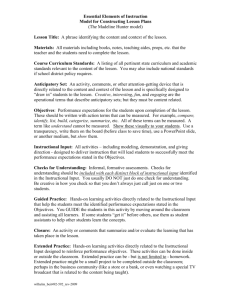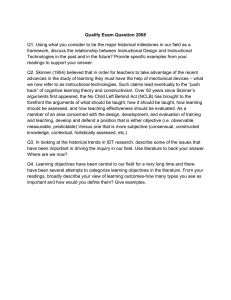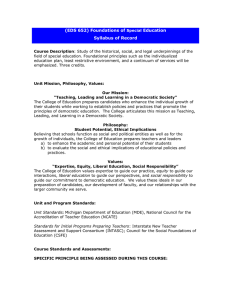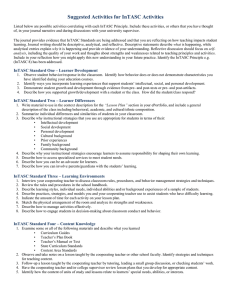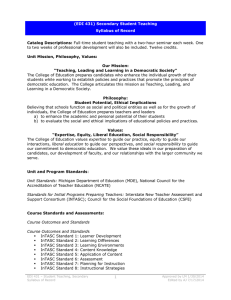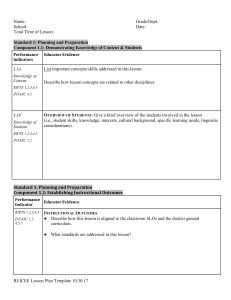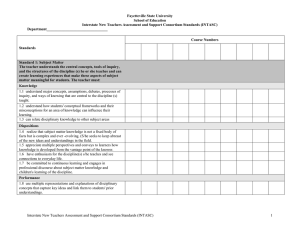Literacy Lesson Plan Lesson Plan Scoring Rubric INTASC Standard 1. Content Pedagogy
advertisement
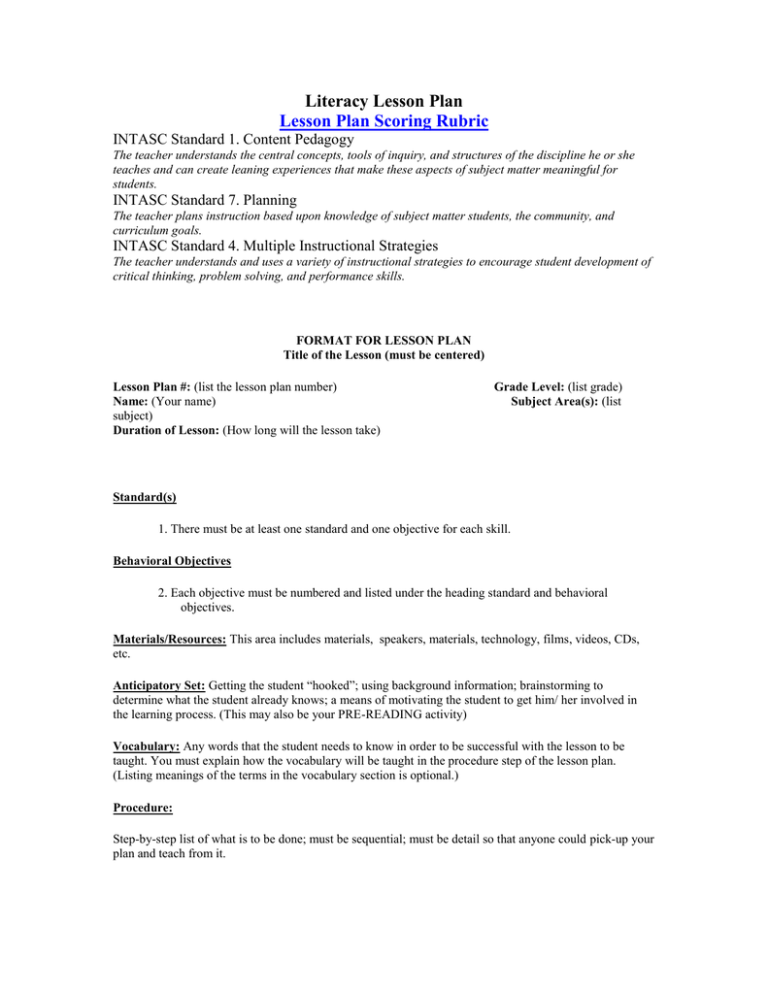
Literacy Lesson Plan Lesson Plan Scoring Rubric INTASC Standard 1. Content Pedagogy The teacher understands the central concepts, tools of inquiry, and structures of the discipline he or she teaches and can create leaning experiences that make these aspects of subject matter meaningful for students. INTASC Standard 7. Planning The teacher plans instruction based upon knowledge of subject matter students, the community, and curriculum goals. INTASC Standard 4. Multiple Instructional Strategies The teacher understands and uses a variety of instructional strategies to encourage student development of critical thinking, problem solving, and performance skills. FORMAT FOR LESSON PLAN Title of the Lesson (must be centered) Lesson Plan #: (list the lesson plan number) Name: (Your name) subject) Duration of Lesson: (How long will the lesson take) Grade Level: (list grade) Subject Area(s): (list Standard(s) 1. There must be at least one standard and one objective for each skill. Behavioral Objectives 2. Each objective must be numbered and listed under the heading standard and behavioral objectives. Materials/Resources: This area includes materials, speakers, materials, technology, films, videos, CDs, etc. Anticipatory Set: Getting the student “hooked”; using background information; brainstorming to determine what the student already knows; a means of motivating the student to get him/ her involved in the learning process. (This may also be your PRE-READING activity) Vocabulary: Any words that the student needs to know in order to be successful with the lesson to be taught. You must explain how the vocabulary will be taught in the procedure step of the lesson plan. (Listing meanings of the terms in the vocabulary section is optional.) Procedure: Step-by-step list of what is to be done; must be sequential; must be detail so that anyone could pick-up your plan and teach from it. Extended Activities/Skills: Include such things as homework; activities or skills that will apply to later lessons or discussions; activities outside of the classroom or school environment. Assessment/Evaluation: 1. What are the tools that will be used to evaluate your student’s performance and achievement of objectives? 2. How do you plan to evaluate yourself in order to determine how well you accomplished your plans, or if there is a need to modify any element of the plan? 3. Remember that tools consist of more than pencil/paper tests (for example: test, observation, verbal questioning, marking, checklist, journaling, portfolio, rubrics, anticipatory guide, study guides, venn diagrams, projects, etc.) Modifications/Adaptations: Include modifications for special needs students, learning styles, English Language Learners and other anticipated problems you may encounter and how to solve them. Reflection: (Describe the lesson and your interaction with students, discuss whether or not you met your objectives, discuss your instructional strengths areas for Growth, and what you change or do differently the next time you taught this lesson).

